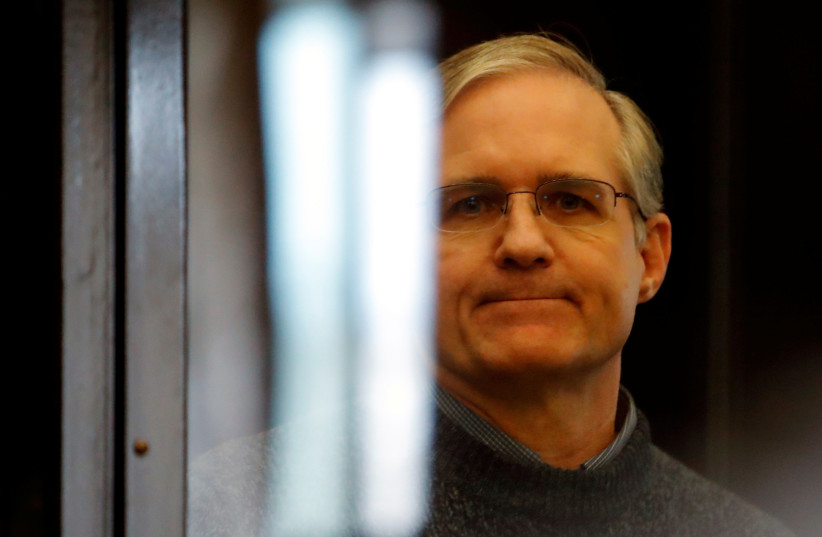Former US Marine Paul Whelan, convicted of espionage in Russia, has said he feels abandoned by the United States for failing to come up with proposals that can convince Moscow to agree to a prisoner swap, the BBC reported.
Whelan, who denies spying, was arrested by the Federal Security Service (FSB) in a room in Moscow's Metropol Hotel on Dec. 28, 2018. Investigators said he was caught red-handed with a flash drive containing sensitive information.
The United States says Whelan is "wrongfully detained" and has repeatedly denied that he is a spy and demanded his release, proposing several different deals.
Whelan told the BBC he felt "abandoned" by the United States and said a previous swap which left him behind in Russia was a "serious betrayal."
"I know the US have all sorts of proposals, but it's not what the Russians want. So they go back and forth, like throwing spaghetti against the wall to see what sticks," the BBC quoted him saying.

"The problem is, it's my life that's draining away while they do this. It's been five years."
US citizens at risk in Russia
The United States has repeatedly told its citizens to leave Russia and warns that those who stay are at serious risk of arbitrary arrest or harassment by Russian law enforcement agencies.
Last December, US basketball star Brittney Griner was released from a Russian penal colony as part of a prisoner swap with Russia.
President Vladimir Putin, when asked this month about a possible prisoner swap for the Wall Street Journal reporter Evan Gershkovich and Whelan, said he hoped an agreement would be reached, but that the US had to listen to Russia's conditions.
"It is not simple, I will not go into details now, but in general, it seems to me that we speak a language that is understandable to each other," Putin said. "I hope we will find a solution. But, I repeat, the American side must hear us and make an appropriate decision, one that suits the Russian side."
White House national security spokesperson John Kirby said after the Putin remarks that Russia had rebuffed a serious proposal. State Department spokesperson Matthew Miller said the United States wanted a deal.
A publicly appointed Russian monitor said on Thursday that Whelan had "noted several problematic points from his point of view regarding the conditions of detention" when she visited his penal colony.
"At the same time, when we toured the colony and communicated with other convicts, no comments or complaints were received from other convicts," said Lyudmila Rezyapkina, deputy head of the Mordovia regional monitoring committee.
